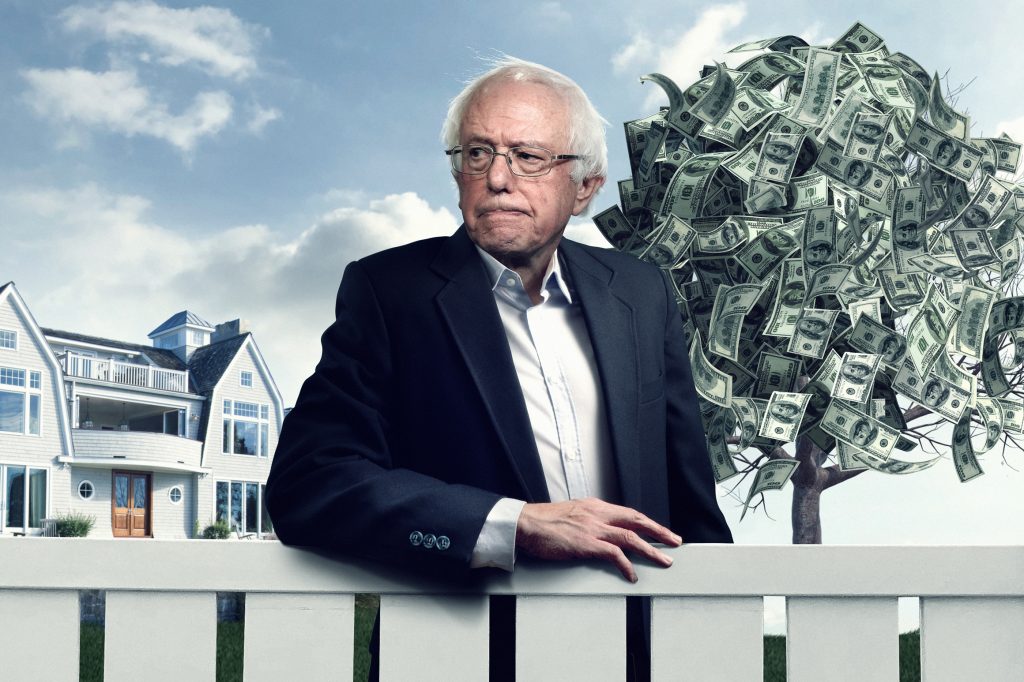Blog Post
The Democrats are now the party of the rich–and the elites are targeting Christianity
I’ve noted several times on this blog that one interesting element of the current political realignment underway in the United States is the fact that the longstanding (albeit uneasy) coalition between Big Business and social conservatives that made up the Republican base has collapsed, and we are still not entirely aware of what the ramifications will be. Big Business has decided to wrap itself in the rainbow flag, and has been consistently exercising as much economic pressure as possible to stymie the efforts of social conservatives to pass pro-life laws and protect religious liberty. Many large corporations, especially those in the entertainment industry, have declared open war on American Christians and their political efforts.
And so this analysis, by the ever-insightful scholar Darel E. Paul (I had him on my podcast earlier this year to discuss his book From Tolerance to Equality: How Elites Brought America to Same-Sex Marriage, published by Baylor University Press) contains some helpful and interesting information. In his latest essay for First Things, Paul notes that the Democrats are now “the new party of the rich”—and that recent data consistently bears that out. What this all means politically, we’re not yet sure. But this is simply more evidence that the traditional Republican base has permanently fractured, while a new one has not yet taken shape—although Paul has a few suggestions:
In November 2018 the Democratic party reclaimed control of the House of Representatives, thanks to strong gains among the rich. The party won 43 seats from Republicans, 18 of which were among the richest 15 percent of congressional districts nationwide. In twelve different states, the richest House district flipped from Republican to Democrat. In five states, the top two richest flipped. The richest 15 percent of House districts are now represented by 56 Democrats and just 10 Republicans. In 2018, voters in America’s wealthiest counties, cities, and neighborhoods made a decisive turn toward the Democrats, and now America’s traditional party of the left—whether it admits it or not—is the party of the rich.
The November 2019 elections have only accelerated this trend. Democrats claimed majorities in both houses of the Virginia state legislature for the first time since the first Clinton administration. Kentuckians elected a Democratic governor despite supporting Donald Trump by 30 percentage points three years ago. Local elections in the Philadelphia suburbs turned out a big blue wave. And in each case, Democratic victories were built on the support of the richest electoral districts.
In Virginia, Democrats captured both houses of the state legislature for the first time since 1995 and will hold the coveted trifecta—control of the state senate, state house, and governor’s office—for the first time since 1993. Before the 2017 election Democrats held only 34 of the 100 seats in the Virginia House of Delegates. After the 2019 election they will hold 55, and it was the richest districts in the state that made a blue Virginia possible. Of the 21 seats that changed hands between 2015 and 2019, 16 were in the richest half of districts state-wide and 13 were in the richest third. In 2015 Virginia’s 27 highest income districts elected 15 Democrats and 12 Republicans. In 2019 they elected 26 Democrats and 1 Republican. While far less change occurred in the Virginia senate, Democrats also took that house’s last remaining suburban Washington, D.C., Republican seat. At the state level, the very wealthiest Virginia districts are now represented only by Democrats.
The same story played out in the Philadelphia suburbs. Pennsylvania’s four wealthiest counties—Chester, Montgomery, Bucks, and Delaware—ring the city to the north and west. All excepting Montgomery County have long been bastions of Republican party power, but no more. In 2019 a veritable blue wave swept over all four, and Democrats now dominate local government throughout the state’s leafiest suburbs. County commissions in each of these four counties will now be controlled by Democrats, something that hasn’t occurred in Bucks County in thirty-five years and in Delaware County since the Civil War. Chester County Democrats won every county-level race, and both Chester and Delaware Counties elected their first Democratic district attorneys in history.
It is important to note the rich state-poor state aspect to this partisan story. Democrats are increasingly becoming the party of the rich in the country’s richest urban and suburban areas. Yet even in a relatively poor state like Kentucky, the richest districts are swinging strongly to the Democrats.
In 2015 Kentucky voters elected Republican Matt Bevin as governor by a comfortable margin of nearly 9 points. Four years later and despite—or perhaps because of—President Trump’s strong backing of Bevin, Kentucky voters threw their support to Democratic candidate Attorney General Andy Beshear (because of Beshear’s close margin of victory, Bevin has not yet conceded and an official recount may occur). In the 2015 gubernatorial election, Kentucky’s twelve richest counties all voted Republican. In 2019, however, four voted Democratic. Moreover, the two richest counties in the state by far—Oldham County in suburban Louisville and Boone County in suburban Cincinnati—even though they still voted Republican in aggregate, saw vote swings to the Democrat of over 10 percent each, respectively the second- and third-largest swings in the state. Two other well-off suburban Cincinnati counties—Kenton and Campbell—did flip to the Democrats with the fourth- and sixth-largest vote swings of the election.
All this is part of a great political transformation. Throughout the West, parties on the right are renouncing their former devotion to neoliberal economic policies. As they do so they draw what some would call “populist” voters into their ranks from the working and middle classes. The short-term problem with this electoral strategy is that populist appeals alienate professional- and managerial-class voters that were once such parties’ electoral pillars. In the United Kingdom the upper middle class increasingly bolsters the resurgent Liberal Democrats. In Germany they fuel the rise of the Greens. In the United States they caused the Democratic party’s triumphs of 2018 and 2019.
By backtracking to an agenda of tax cuts, welfare-state austerity, liberal immigration policies, and foreign wars, the Republicans may win back the support of many members of the top 20 percent. But if the party is not to be caught out without its skin like the frog princess in the Russian fairy tale, it should follow the lead of Senators Josh Hawley and Marco Rubio, and transform the party into a working- and middle-class party in pursuit of the common good. A platform oriented around the dignity of work, the restoration of the family, and the bonds of citizenship is unlikely to win back the votes of Orange County and northern Virginia. Reaching out instead to voters of every race and region in need of such a program is the only worthwhile path forward.









An interesting prospect. Tucker Carlson’s dominance shows there’s obviously a market for social conservatism combined with more liberal economic policies. And you can certainly make the case that the white working class has more in common with the black working class than they do with uppity whites and, as such, they will eventually start voting together. According to some of the polls, Trump’s approval rating is in the 30s with African Americans and they’re slowly warming up to him. A party obsessed with new pronouns, expanding late-term abortion, and waging war on climate change just doesn’t have that much appeal to normal people.
On the other hand, I’m not entirely convinced the Democrats will be able to pull off adding upper income voters to their coalition. Bernie Sanders and Elizabeth Warren have made a career out of demonizing millionaires and billionaires. They intend on using big tax hikes to pay for free university and Medicare for all. Even billionaires that usually vote Democratic, such as Bill Gates, have said they would consider voting for Trump if the Democrats nominate someone too radical. An Obama-approved sort of fiscally moderate candidate might have better luck.